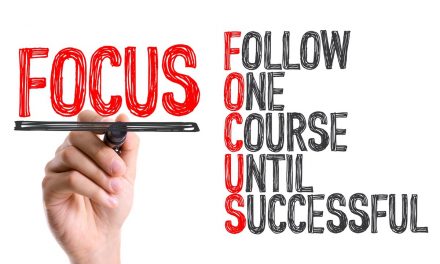It’s so easy to think that the mastermind process is a 3 monthly jolly where you get to sit in a room with your mates and talk about woo-woo.
In the short term I can understand this, but it’s also fair to say that you get out of the process what you put into it, and the value of the experience can only be measured by one thing: your willingness to implement.
Without exception the 3 days I spend at Renegades are more exhausting than any consecutive 3 days in my own business. Again, the reason is simple: problem solving and strategising at an above the waterline level, as my good friend Steve Matthews says, requires a whole different kind of energy.
Be assured that being a member of a Renegades group does not give you answers to questions, there is no magic fix to a problem, but what you do get are perspectives from a different angle and from these you can make an informed decision to take a particular line of action.
Much of the time, because you are so engrossed in the running of your own business and have been doing things in a specific way, it’s hard to see that things could be done differently and even harder to action them.
Which is where accountabilities come in; holding yourself accountable for implementation is a rapid way to ensure growth.
I’ve been in our Renegades process now for 8 cycles and the Dragon would argue that I probably would have got shit done anyway even if I were not a member and I can’t argue with that, but as the saying goes ,you don’t know what you don’t know.
And because of Renegades I’m thinking about my business in a completely different way from how I did 2 years ago, rather than run a business to survive and earn a living, the Renegades process has challenged me to build a business that has a value and could easily be sold.
‘Arggh’ many would say, ‘that’s easy and a challenge that everyone who has a business should complete’.
True, but have YOU thought about it?
– More importantly, have you begun the steps to formalise that?
– And stepping on from there have you identified the figure that you will want to sell the business for so that you have the financial freedom you seek?
– Lastly, have you set the time frame for that cycle to be complete with a clear route to take to achieve it?
You get out of the process what you put into it, and the value of the experience can only be measured by one thing: your willingness to implement.
Well, as I write those words, I know that I have not done half of the above list as it’s a long process, but at least the process has begun. And, 18 months into the task of self-removal, this last summit had 3 big ‘Aha’ moments which I hope, when shared may give you an insight into how advice from others can impact the way you think and operate.
Keep in mind that for the last year my company has been through what for any other business my size could have been disastrous:
- A 4-month factory move during which time there was zero production
- 4 months without landline telephone system or immediate active contact to the internet and the CRM system.
Yet during this time the Renegades team still insisted I plan for future prosperity and self-removal, even though it seemed an impossible task.
Having survived the process and the move, I’m well into the new product launch cycle and deep in the operational trenches to getting it out there.
So, what were the ‘Aha’s? I hear you asking.
- Give away the tools to do the operational side of the business. Doh, it seems obvious, but my friend Mr Stace who runs a million pound roofing business said that to get out of fixing the problems day to day and to spend more time on working on his business, the only way he could actually achieve this was by giving away the tools to do the job; in the roofing business that was symbolised by the tool belt. He says that from that date he never went back on a roof to fix a staff made mistake, or to take on a job.
To a degree it’s also fair to say he did not love the physical side of roofing, so it was an easy giveaway, but in giving up the tool belt there is a clear mind shift in going from operational thinking to strategic thinking. I would need to utilise the Aha factor but what toolset would I need to give away to take a step in the right direction? More importantly, who was I going to give the tools to and in what time frame?
I’ve been personally making my ovens for the last 15 years; every single oven that I have sold during this period has been made by yours truly and, for the majority of the time by me, with the occasional help of someone to clean up after me.
Simply thinking that this is what I want to do is a challenge, verbalising that I will be removing myself from this process in a given timeframe is scary enough but then making it an ‘accountability’…. I guess you can see the impact that that could have. There is of course one difference between my good friend and me, he no longer enjoyed the process of fixing roofs, it was a job. I, on the other hand, still thoroughly enjoy what I do and do not see it as a chore; the challenge therefore is not so much giving away the tool belt but not asking for it back!
- Aha 2 came from Steve Mathews who is putting together a 90 day fast forward implementation and team building program. During his time Steve talked about how he should go about launching his new business and one of his lead magnets could be a video on understanding the concepts of above the waterline thinking. Not knowing what the hell he was on about we asked him to explain. So, he did. And boy was it an Aha moment. I won’t go into that much detail here as I would very much hope that Steve shares the “where is the waterline in your business” experiment with you.
It became very clear very quickly that if I did not do what was needed in Aha 1 then I would be forever trapped in the operational manufacturing side of my business and that the business would forever be wrapped around me and therefore completely unsellable. I think Steve’s presentation crystallised the importance of giving away the tool-belt.
- Aha 3 came from Dave Dean as an observation of The Great British Menu and how I could apply the concepts within that program to my business.
I know it’s a tenuous link: pizza ovens and food, but since everyone who buys my ovens wants to be able to cook better food the link is not that tenuous.
What Dave so rightly observed is that I’m not brilliant at getting other people to do the things that I do so well, don’t mean to blow my own trumpet here, but one of my greatest fears about employing staff is attention to doing the job right first time. When you, the owner of the business does a job, you don’t want it coming back. You simply do not have the time to spend on doing it again or reworking it.
This however is fundamentally different from how staff see the same problem: extra time spent on a job or a return is more work and since on the whole, they are paid for work done it’s easy to see how a % of return relates to an increase in pay.
Something I also learned about dealing with Thai exporters several years ago where at least a quarter of any consignment was defective or wrong. No problem they would say, we’ll put it right on the next consignment thus guaranteeing a next consignment.
However when it’s you doing the work, you don’t want there to be an ‘I’ll do it again’ scenario and so in my business, of the over 6000 units I have personally handmade, I’ve only ever had 3 returns: one structural failure, one because the wife did not like the handmade look that I create and one because the customer could not get the product through the door.
As far as manufacturing not getting it right first time, I have always done everything I can to ensure that it’s right first time and I guess my negligible return rate is testament to that fact.
In saying that, clearly criticising staff to achieve the same level of handmade quality is always going to be the biggest challenge. And I hate confrontation more than anything in the whole world; it’s an emotional state that leaves me depressed and exhausted. So how do I go about criticising the quality of workmanship in staff made products and get them to achieve a 10 more often than a 7or 8?
If you watch The Great British Menu you’ll know that the judging is done by a chef who is a peer and also an equal, for him to go out and say blatantly that the work was shoddy could be an insulting thing and put both chefs’ reputations into dispute. Instead therefore, the producers came up with a clever way of overcoming the problem through self-scoring led by a series of formulaic questions such as:
- Are you happy with this dish?
- If you had more time what would you change?
- Are you happy with the balance of flavour?
- Would you change the presentation?
- And then lastly the clincher, what would you score this dish out of 10?
Basically, because the contestant has had to question components to score it a 10, unless absolutely perfect would be arrogant, and if the contestant admitted to obvious short falls then the self-criticism meant that a low score would not be unjustified, and everyone could save face.
The contestants then having been honest and self-deprecating could be seen as a true professional and still save face endearing themselves to the viewing public for their candour and integrity.
Finding a way to utilise this system of criticism and then appraisal in my own business is going to be a challenge, but it will also help to defuse the confrontational side of below par work which I hope will never ever creep into my business.
More importantly however is that the team I’m recruiting at the moment has not had time to develop bad habits, so adopting this strategy early will mean that it won’t be a culture shock. I’ve watched The Great British Menu for years; it’s one of my favourite programs and yet it took a mastermind, not me to see how the strategy employed in that program could be used to judge the work done by subordinates as well as peers.
These were the three most impactful Aha’s.
By doing the 3 Aha’s, I found I made no fewer than 30 references to Aha’s in my Aha Action List!
30 things that needed to be done that I had not thought of before, and probably would not have at all if I hadn’t sat in the room with my board that I can’t afford.
My fellow Renegades I salute you!





